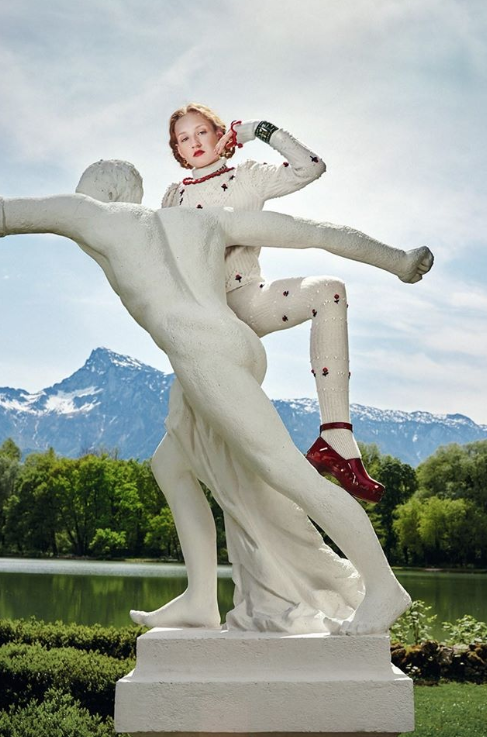China, Africa OBOR 4.0.
Chinese Regime Enables Huawei’s Overseas Expansion Through One Belt, One Road Initiative
Embattled Chinese telecom giant Huawei has been able to expand its business internationally even as many governments around the world voice their concerns about the security of its equipment.
Huawei has successfully transformed into one of the biggest tech giants in the world from a small Chinese company because it serves the interests of the Chinese Communist Party (CCP):
Huawei was able to build its presence in global tech sectors because the company has been piggybacking off China’s “One Belt, One Road” (OBOR, or Belt and Road) foreign-policy initiative in recent years.
In 2013, Beijing rolled out “One Belt, One Road,” an aggressive plan to build up trade routes connecting China, Southeast Asia, Africa, Europe, and Latin America. Through the financing of infrastructure projects in more 60 countries, the Chinese regime is seeking to bolster its geopolitical influence around the world.
Huawei is a key participant in those projects.
In May 2017, at the Belt and Road Forum in Beijing, where Chinese leader Xi Jinping invited heads of state to participate in the project, Xi reiterated the importance of building smart cities under OBOR.
On the company’s official website, Huawei has touted its ability to provide “smart solutions,” including “safe cities” and “smart cities”—in other words, using Huawei’s surveillance technology and cameras.
“A Smart City is a complex mesh of systems across sectors such as transportation, energy, water, and healthcare,” according to Huawei’s website. The company claims that its “smart city” solution can build up a network, much like a person’s nervous system, with “real-time situation reporting and analysis that combines cloud computing, IoT, Big Data, and Artificial Intelligence (AI).”
But inside China, such technology has been used to monitor citizens and snuff out dissidents.
The dangers of Huawei exporting such technology abroad were explained by the think tank Jamestown Foundation, in an article published in June 2018.

Be part of the future-ready generation of 2020
You can create your own APP inside Sylodium’s system as China – Africa
XIAN – Southern Africa Tech IMPORT EXPORT 4.0 , NINGBO – West Africa IMPORT EXPORT INDUSTRY 4-0, Qingdao – Nigeria IMPORT EXPORT 4-0 , China South – South Africa New Social Class 4.0, China – West Africa IMPORT EXPORT AI FOR PHILOSOPHY APPS 4.0.
We are not only worth the sharpness or brilliance, we also ask for some depth
The future of All bilateral trade, plus AI software and Gamification-IIoT platform is in our hands.
IoTT (internet of things and thoughts)
Manipulating someone is not bad
they are life lessons
Cutting off a finger, yes, it is not "good", it is "bad", in fact, if you are caught, you are judged and imprisoned.
The #Spanish Empire, discovered, conquered, killed, raped and mixed with the Indians.
The #British Empire, conquered, and annihilated them
So true is the individual depth and inexpressible confusion of holistic and monistic Indian wisdom
although the grammar was left over
as the absence of final cause in the atomism of the Cartesian and mechanical Western coordinates
although physics was left over
but while I was talking I had already run away,
the movement had already fled
it doesn't matter if it was in the gravitational field or at atmospheric pressure
He had already fled, unable to hold him, the movement
I had already fled
there were hundreds, thousands of circles and kind partitions in 2 or 3 or 4 or 1,000 parts, between side A and side B in and from which to take possession, for use and enjoyment, as their own, as outsiders.
It is the rupture, the one that breaks in two, the passion of new extremes, the one that moves entire towns.
For Catholics, the Protestants became their greatest enemies (and vice versa) being both Christians, so that the usual rivals, the Moors, looked kindly and potential allies for both parties, Catholics and Protestants.
For a skeptic of race, Abraham is the true paradox, the return of the son to the Father, sacrificing his own son, can only be seen as extreme madness for those who never lived a miracle.
The skeptic is an extreme full of contradictions that polemicizes with the other extreme, that of absolute Faith.
Selling the middle terms always looks great, but it doesn't move hearts.
Vanity of vanities.
The middle terms are also split, and extremes are made between them, strictly speaking, the middle term does not exist, it is always empty, it lasts for a moment, which always breaks.
How much they look essentially in austerity and prudence in Castilian and Catalan.
It is the controversy, the confrontation, the materialist vs. the idealist, the classicist (healthy) vs. the romantic (sickly) the epicurean (Marxist) vs. the Stoic (Hegelian), the Marxist vs. the Hegelian (being in structure, not felt, the same) what moves us, and puts us.
A good strategy of power, for example of economic power, is to generate contrary passions that affect its rivals, such as the neo-liberals that provoke anarchist, environmentalist passions, etc. that decimate their true rivals, the States, parties by a thousand horns, incapable of govern and govern.

Africa in the sights of Industry 4.0
Drop in apprenticeship numbers necessitates action: Ai Group
Companies share in $20 million of work for Australian Army
Multi-sector conference identifies priorities for Industry 4.0
Setting off a spark: National Science Week
The spotlight for Industry 4.0 will turn to Africa at this year’s World Economic Forum on Africa, which will be held in Cape Town, South Africa, from September 4-6.
Structured under the theme “Shaping Inclusive Growth and Shared Futures in the Fourth Industrial Revolution”, the summit will grapple with the increasing development rate of sub-Saharan Africa, as it is the first World Economic Forum summit to be held in sub-Saharan Africa since 2017.
According to Elsie Kanza, head of the Regional Agenda, Africa, and member of the executive committee at the World Economic Forum, there is great potential in the development of Africa, in the coming years.
“Africa’s successful development depends on building the right conditions for its new generation of entrepreneurs, innovators and leaders. This means smart, agile institutions; an enabling environment for innovation that includes access to skills and capital; and a determined approach by policy-makers to level the playing field and implement policies that prioritise sustainable, inclusive growth over short-term imperatives,” said Kanza.
3 strategies for Africa to thrive in this new era of globalization
Africa's contribution to global scientific knowledge stands at 1.1%. Currently, the ratio between scientist and inhabitants stands at 79 scientists per million inhabitants, the lowest in the world. At the same time, scientists trained in Africa often end up working elsewhere due to the lack of infrastructure and availability of resources.
Globalization 4.0 presents Africa with a unique opportunity to position itself as a knowledge-led economy and to harness its demographic dividend – the youth – in addressing its grand challenges. Researchers have proved beyond doubt that knowledge and science-driven development is key to the socio-economic growth and wellbeing of the people of a given country.
China - Africa 4.0 - 27/01/2019
China - Africa 4.0 - 11/09/2018

